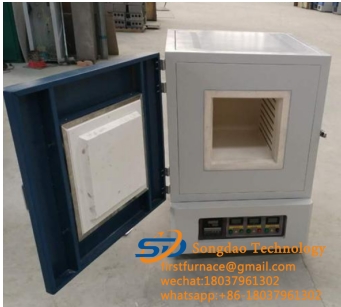- 06
- Oct
How to Achieve Economic Operation Index of High Temperature Muffle Furnace
How to Achieve Economic Operation Index of High Temperature Muffle Furnace
Iji mee ka nnukwu ọkụ muffle ọkụ reach the economic operation index, it is necessary to solve the problem of complete fuel combustion. How to achieve it? Let’s take a look at the relevant practices.

High enough high temperature muffle furnace hearth temperature
Temperature is the primary condition for fuel combustion. The lower temperature required for the fuel to start a violent oxidation reaction is called the ignition temperature. The heat required to heat the fuel above the ignition temperature is called the heat source. The heat source for the fuel to catch fire in the combustion chamber generally comes from
The heat radiation of the flame and the wall of the high-temperature muffle furnace and the contact with the high-temperature flue gas. The furnace temperature formed by the heat source must be kept above the ignition temperature of the fuel, that is, the furnace temperature must be high enough for the fuel to burn continuously, otherwise the fuel will be difficult to ignite, fail to burn, or even fail.
the right amount of air
The fuel must be fully contacted and mixed with enough air in the combustion process. In the case that the furnace temperature of the high-temperature muffle furnace is high enough, the combustion reaction speed is very fast, and the oxygen in the air will be quickly consumed. Sufficient air must be supplied. In actual operation, the air sent into the furnace is excessive, but The excess air volume should not be too much and should be appropriate to avoid lowering the furnace temperature.
Enough combustion space
The combustible substances or fine coal dust volatilized from the fuel are burned as the flue gas flows. If the furnace space (volume) is too small, the flue gas flows too fast, and the flue gas stays in the furnace for too short time. Combustible materials and coal dust are fully burned. Especially when combustibles (combustible gas, oil droplets) touch the heating surface of the boiler before they are completely burned, the combustibles are cooled to below the ignition temperature and cannot burn completely, forming carbon nodules. At the same time, ensuring sufficient combustion space is conducive to the full contact and mixing of air and combustibles, so that combustibles can be fully burned.
oge zuru ezu
It takes a certain amount of time for the fuel to burn out if it does not catch fire, especially for layer-burning furnaces. The fuel combustion of high-temperature muffle furnaces must take enough time. The larger the combustion particles, the longer the burning time. If the burning time is not enough, the fuel burns incompletely.
